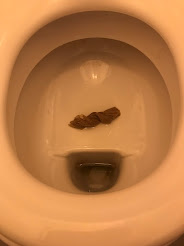After ten plus years of scheduling, then unscheduling to try a new intervention, then rescheduling, then unscheduling to try something else, I'm finally going down the rabbit hole. Tomorrow I am having the cornea of my left eye removed and a dead person's cornea sewn in its place. A cornea transplant surgery. Not as intense as a kidney transplant or other organ transplants as there is no blood in the eye. The chance of rejection is greatly reduced. However, the recovery time and conditions under which are significantly onerous. I am a little nervous and thought I'd capture my "before" thoughts and ruminations here.
How did I get here? Back in 1984 I had elective surgery on my eyes. A precursor to lasik. I had what was called radial keratotomy. Dr. Hines here in Denver performed the procedure. For the first ten or so years after, it was a success. I saw great out of both eyes. 20:20. Contacts were never an option for me and I was too vain to wear my glasses full time. I always thought my blue eyes were my best feature and I was loathe to want to cover them up with a pair of glasses. My vanity is responsible for where I am now.
Dr. Hines was all over the TV back then. He advertised himself as the, "Eye doctor of the Denver Broncos". I mean, wouldn't trust him, right? And, as predicted, after ten years or so I started to need reading glasses. Then, not as predicted, my left eye began failing me. One doctor said my cornea in that eye looked like bubble wrap. I was back in glasses. My right eye was still doing ok, but the lens in my left eyeglass kept getting thicker and thicker. Can you say "coke bottle"? I tried what was called Sclera contacts specifically engineered for my one eye. But like the contact lenses of my youth, I was never able to wear them comfortably for more than a couple of hours. The prescription max'd out about three years ago. Two years ago my cataracts finally grew to be large enough to qualify for surgical removal. I went to my now familiar surgeon for this procedure and he tried his best to modify the new lens to correct some of my cornea issues. But no luck.
I basically see only light and shadow out of my left eye. But here's what is amazing about eyesight: your brain will try to make up the deficit for what your eyes can't see. I don't know what I don't see. I think I am seeing something. I think I see everything. It isn't until I get closer, or the light gets brighter or I tilt my head a certain way, that I am able to truly see what it is I'm looking at. Depth perception is my greatest struggle. Going down stairs is treacherous. Hiking downhill is frustrating. I gave up mountain bike riding several years ago as I could no longer see how far logs in the trail were, or how far a drop off a rock might be. Yet I continued driving. Much to the dismay of those who were away of my lack of visual acuity. I learned if I followed a pair of tail lights at night I could navigate. I learned to always look for the right lane marking as I frequently mis-saw lane markings on my left side. Once, I screeched to a halt thinking I was about to go over a really big bump in the road. A second later I realized it was a shadow and not a bump. So many stories like this.
After going thru many evaluations to confirm everything behind my cornea is functioning properly, I was approved for this transplant. It is about a two hour long procedure. I won't be staying overnight. Rather AL will bring me home and stay with me thru my first follow up visit the next day. I have a second follow up visit a week later. Then, assuming all is progressing as it should, I will start returning to my surgeon every two weeks for the next four months to get a stitch here, and a stitch there removed. At four months, I quit going every two weeks, and stay with what ever number of stitches remain until a year post surgery. Then these last stitches are removed. It is only then will we know for sure if the surgery was a success. Sometimes, when the last stitch or two is removed, the cornea will turn into amorphous jelly and I'm back where I started.
So, that's where I've been, and where I'm going.
I am not as stressed as I thought I'd be. I am definitely distracted and THIS is all I can think about. My social life will be severely restricted in the beginning as I will be at high risk for infection. I also will not be able to lift anything heavy or do any activity that will raise my heart rate, for fear of popping a stitch. I don't know for sure if these restrictions are for the first four months only, or for the whole year.
It's a crazy commitment, but I feel as though I have no choice. While getting all the preliminary evaluations done, they found the very beginnings of macular degeneration in my right eye. My good eye. It could be decades before I'll be impacted by it, but they don't do this transplant surgery after age 70. As I'll be 68 in February, I think this might be my only chance to preserve what eyesight I have.
My life will be different afterward. Both short term and long term. If successful, no more double vision or lack of depth perception. If not successful, I guess I'll continue learning all the various ways to adapt. We humans are such adaptable creatures. Thank goodness.
Here's looking at you! (heh-heh-heh)






















